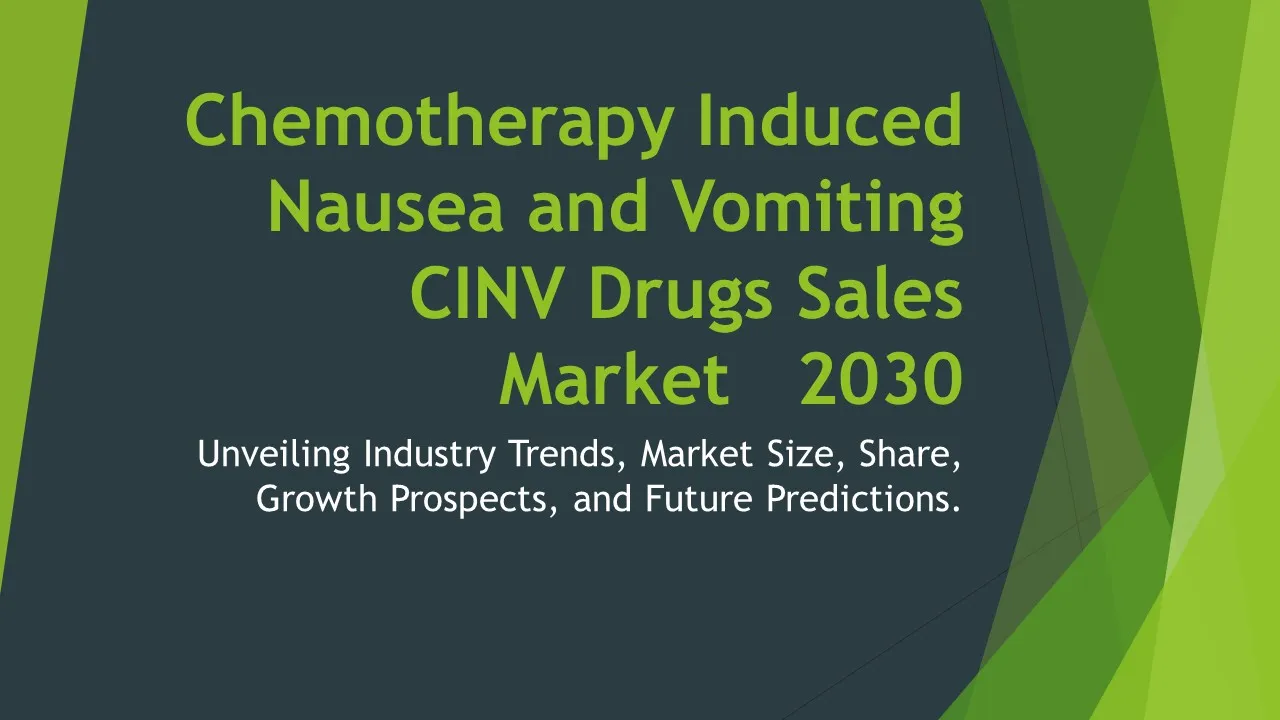Addison’s Disease Treatment
Addison’s Disease Treatment Market Segments - by Treatment Type (Hormone Replacement Therapy, Medications, Lifestyle Management, Surgery, and Others), End-User (Hospitals, Clinics, Ambulatory Surgical Centers, Homecare Settings, and Others), Distribution Channel (Hospital Pharmacies, Retail Pharmacies, Online Pharmacies, and Others), Type of Medications (Corticosteroids, Mineralocorticoids, Immunomodulators, Antidepressants, and Others), and Region (North America, Europe, Asia Pacific, Latin America, Middle East, and Africa) - Global Industry Analysis, Growth, Share, Size, Trends, and Forecast 2025-2035
- Report Preview
- Table Of Content
- Segments
- Methodology
Addison’s Disease Treatment Market Outlook
The global Addison’s disease treatment market is projected to reach approximately USD 1.5 billion by 2035, with a compound annual growth rate (CAGR) of around 6.2% during the forecast period from 2025 to 2035. The increasing prevalence of autoimmune diseases and awareness regarding hormonal disorders are significant factors driving market growth. Moreover, advancements in medical technologies and the development of new treatment protocols contribute to the market's expansion. The rising demand for personalized medicine, coupled with an increase in healthcare expenditure, further supports market development. The growing geriatric population, which is more susceptible to such disorders, adds to the market's upward trajectory.
Growth Factor of the Market
Several factors are propelling the growth of the Addison’s disease treatment market. One key driver is the rising incidence of Addison's disease, largely attributed to increasing autoimmune diseases such as adrenal insufficiency, which require effective treatment solutions. Additionally, the growing population's awareness regarding the condition and its symptoms leads to timely diagnoses and treatments. The introduction of innovative therapies, particularly hormone replacement therapies, enhances treatment efficacy and adherence among patients. Evolution in the healthcare landscape, such as improved access to healthcare and advancements in telemedicine, provides patients with better access to treatments and monitoring. Finally, increasing healthcare spending across various regions is facilitating better research and development, contributing to the overall growth of the market.
Key Highlights of the Market
- Significant rise in awareness about Addison’s disease and its treatment options.
- Innovative therapies and improved hormone replacement treatments are being developed.
- Growing emphasis on personalized medicine and patient-centric approaches.
- Expansion of healthcare infrastructure in emerging economies driving market growth.
- Advancements in telemedicine improving access to treatment and follow-up care.
By Treatment Type
Hormone Replacement Therapy:
Hormone replacement therapy is one of the primary treatment modalities for Addison’s disease, focusing on replenishing the deficient hormones that are crucial for bodily functions. This type of therapy typically involves the administration of glucocorticoids and mineralocorticoids, which help to restore normal metabolic functions and manage symptoms associated with adrenal insufficiency. Hormone replacement therapy has proven to be effective in enhancing the quality of life for patients, providing them with stability and reducing the risk of adrenal crises. Furthermore, the ongoing research into optimizing dosages and developing new formulations is expected to bolster the market for hormone replacement therapies significantly.
Medications:
Medications play a critical role in the management of Addison’s disease, particularly in controlling the symptoms and preventing complications associated with the condition. Common medications prescribed include corticosteroids, which help to replace the hormones that the adrenal glands cannot produce adequately. These medications are vital for managing symptoms such as fatigue, weight loss, and low blood pressure. The market for Addison’s disease medications is evolving, with pharmaceutical companies investing in the research and development of new drugs that offer improved efficacy and fewer side effects. Additionally, the availability of generic options is anticipated to enhance treatment accessibility, thus driving market growth.
Lifestyle Management:
Lifestyle management is an integral component of managing Addison’s disease and involves educating patients on maintaining a healthy lifestyle that complements their treatment regimen. This includes dietary recommendations, stress management techniques, and regular physical activity suited to their condition. Patients are encouraged to monitor their symptoms closely and make lifestyle adjustments to avoid triggers that may exacerbate their condition. The emphasis on lifestyle management is gaining traction as healthcare providers recognize its importance in improving patient outcomes and overall quality of life. This segment is expected to witness significant growth as awareness and support systems for lifestyle interventions improve.
Surgery:
Although surgery is not a common treatment approach for Addison’s disease, it may be indicated in specific cases where other conditions coexist, such as tumors affecting the adrenal glands. Surgical interventions may involve the removal of tumors or adrenal glands, depending on the underlying cause of the adrenal insufficiency. The surgical segment of the Addison’s disease treatment market is relatively smaller compared to others; however, it plays a vital role in specific patient management. Ongoing advancements in minimally invasive surgical techniques are expected to enhance recovery times and outcomes for patients undergoing surgical interventions, thereby supporting this segment's growth.
Others:
This segment encompasses various alternative therapies and adjunct treatments that may be utilized in conjunction with standard care for Addison’s disease. These may include complementary approaches such as acupuncture, herbal remedies, and nutritional supplements designed to support adrenal health. Although not mainstream, there is a growing interest in these therapies among patients seeking holistic management of their condition. The 'others' segment's growth is expected to be driven by increasing patient interest in integrating complementary therapies with conventional treatments, highlighting the need for healthcare providers to consider a more integrative approach in managing Addison’s disease.
By User
Hospitals:
Hospitals represent a significant user segment in the Addison’s disease treatment market, as they are often the primary setting for diagnosis and treatment initiation. Patients diagnosed with Addison’s disease frequently require hospitalization during acute adrenal crises, necessitating immediate medical intervention. Hospitals typically offer comprehensive care, including hormone replacement therapy and other necessary medications, closely monitored by healthcare professionals. With advances in hospital infrastructure and the availability of specialized healthcare teams, hospitals are increasingly becoming centers of excellence for managing complex endocrine disorders, which is further propelling market growth.
Clinics:
Clinics play a crucial role in the ongoing management and follow-up care of patients with Addison’s disease. These outpatient settings enable patients to receive routine check-ups, medication management, and education about their condition without the need for hospitalization. The increase in specialty clinics focusing on endocrinology has facilitated better access to care for patients and improved disease management. Clinics also provide a platform for healthcare providers to educate patients about lifestyle adjustments and monitor their treatment efficacy, thereby enhancing the overall patient experience. The convenience and accessibility offered by clinics are expected to drive this segment's growth.
Ambulatory Surgical Centers:
Ambulatory surgical centers (ASCs) may be involved in the surgical management of Addison’s disease, particularly in cases where patients require adrenal surgery or other related procedures. These centers provide a cost-effective and efficient alternative to traditional hospital surgeries, allowing for outpatient procedures that do not require extended hospital stays. ASCs are becoming increasingly popular due to their focus on patient-centered care and shorter wait times for surgical interventions. As awareness about the role of ASCs in managing endocrine disorders grows, this segment is anticipated to expand significantly in the coming years.
Homecare Settings:
Homecare settings are increasingly recognized as vital components in the management of chronic conditions like Addison’s disease. Patients often require ongoing hormone replacement therapy and regular monitoring, which can be facilitated through home healthcare services. These services include nurse-led visits to administer medications, educate patients and caregivers, and manage potential complications. The rise of telehealth services has further enhanced the capabilities of homecare settings, allowing healthcare professionals to monitor patients remotely. As the trend shifts towards more personalized and home-based care solutions, this segment is expected to witness substantial growth.
Others:
The 'others' segment includes various alternative healthcare settings such as long-term care facilities and rehabilitation centers that may provide care for individuals with Addison’s disease. These settings cater primarily to patients who require ongoing support due to coexisting health conditions or advanced age. As the number of patients with chronic diseases increases, the demand for specialized care in these facilities is also on the rise. This segment's growth is fueled by the need for comprehensive care that addresses both Addison’s disease and its associated complications, thus creating a holistic approach to patient management.
By Distribution Channel
Hospital Pharmacies:
Hospital pharmacies are a critical distribution channel for medications used in the treatment of Addison’s disease. These pharmacies are responsible for providing medications directly to hospitalized patients, ensuring that they receive timely and appropriate therapies during their inpatient stay. Hospital pharmacies often have access to a broader range of specialized medications, including newer formulations that are essential for the effective management of this condition. The increasing hospital admissions for adrenal crises drives the demand for hospital pharmacies, making them an essential component of the Addison's disease treatment market.
Retail Pharmacies:
Retail pharmacies serve as a primary source for patients managing Addison's disease in an outpatient setting. These pharmacies dispense prescribed medications such as corticosteroids and mineralocorticoids, providing essential access to treatments necessary for daily management. The convenience of retail pharmacies, coupled with the pharmacist's ability to counsel patients on medication adherence and potential side effects, significantly enhances patient care. Moreover, the rising number of retail pharmacy chains and increased competition is expected to lead to better pricing and availability, driving this segment's growth in the Addison's disease treatment market.
Online Pharmacies:
Online pharmacies have emerged as a vital distribution channel in the Addison’s disease treatment market, particularly due to the increasing trend towards digital healthcare solutions. These platforms allow patients to conveniently purchase medications from the comfort of their homes, which is advantageous for individuals with chronic conditions who may find it challenging to visit physical pharmacies. Online pharmacies often provide discreet services and can offer competitive pricing, making medications more accessible. The growing acceptance of telehealth and e-pharmacy services is expected to propel this segment’s growth, as patients increasingly seek convenience and flexibility in managing their health.
Others:
This segment encompasses various alternative distribution channels, including specialty pharmacies and direct-to-patient distribution models. Specialty pharmacies are tailored to manage complex medications and offer personalized services, ensuring appropriate use and adherence to treatment regimens. Direct-to-patient distribution models have gained popularity, especially for chronic conditions, as they provide medications directly to the patient's home. These channels cater to patients who require specialized medication management and personalized care, and their growth reflects the increasing demand for innovative pharmacy solutions that enhance patient outcomes and convenience.
By Type of Medications
Corticosteroids:
Corticosteroids form the cornerstone of pharmacological treatment for Addison's disease, as they are critical for replacing the cortisol that the adrenal glands are unable to produce. Common corticosteroids used include hydrocortisone, prednisone, and cortisone acetate, which help to alleviate the symptoms of adrenal insufficiency by mimicking the body’s natural hormone production. Corticosteroids are usually administered orally but may also be given intravenously in emergencies. The effectiveness of corticosteroids in managing Addison’s disease has made them the most prevalent class of medication in this market, accounting for a significant share of the overall treatment approaches utilized.
Mineralocorticoids:
Mineralocorticoids, particularly fludrocortisone, are another essential class of medications used in the treatment of Addison's disease, primarily to manage the body's electrolyte balance and blood pressure. Patients with Addison's disease often experience issues with sodium retention and potassium excretion, leading to potential health complications. The inclusion of mineralocorticoid therapy helps to mitigate these risks by ensuring proper electrolyte balance and optimizing the patient's overall health. The market for mineralocorticoids is expected to grow steadily as more healthcare providers recognize the importance of this therapy as a complementary option to corticosteroids in managing Addison’s disease effectively.
Immunomodulators:
Immunomodulators are increasingly being explored as a therapeutic option for patients with Addison’s disease, particularly those with underlying autoimmune conditions. These medications work by modulating the immune system's response, potentially reducing the autoimmune attacks on the adrenal glands that lead to adrenal insufficiency. While immunomodulators are not the first line of treatment for Addison’s disease, their integration into treatment protocols could offer new avenues for managing patients with complex cases. Ongoing research and clinical trials are essential in establishing the efficacy and safety of immunomodulators in Addison’s disease management, which could result in their increased adoption in the future.
Antidepressants:
Antidepressants are sometimes prescribed as part of a comprehensive treatment plan for patients with Addison's disease, particularly when there are coexisting mood disorders or the psychological impacts of living with a chronic condition. The stress and lifestyle changes associated with managing Addison’s disease can lead to anxiety and depression, necessitating the need for mental health support. Antidepressants can help improve the overall quality of life for these patients by addressing the psychological aspects of their condition. The recognition of the importance of mental health in chronic illness management is likely to drive the growth of this segment as healthcare providers adopt a more holistic approach to treatment.
Others:
The 'others' segment includes various alternative and adjunct medications that may be utilized in the management of Addison’s disease. This can encompass herbal supplements, vitamins, and minerals that patients may choose to integrate into their treatment regimens. While clinical evidence supporting the efficacy of these alternatives may vary, there is a growing interest in complementary approaches to enhance overall well-being. As patients increasingly seek integrative treatment options, this segment may see growth, underscoring the need for healthcare providers to remain informed about both conventional and alternative therapies available for their patients.
By Region
The North American region holds a significant share of the Addison’s disease treatment market, attributed to advanced healthcare infrastructure, high levels of healthcare expenditure, and the presence of leading pharmaceutical companies focused on adrenal disorders. The increased prevalence of autoimmune diseases and a better understanding of hormonal disorders among healthcare professionals further supports the region's market growth. North America is expected to witness a CAGR of around 6.5% over the forecast period, driven by continuous advancements in treatment options and heightened awareness among patients and caregivers regarding Addison's disease.
Europe is also a prominent market for the treatment of Addison’s disease, benefiting from a well-established healthcare system and a growing focus on patient education and disease management. The European market is characterized by an increasing number of clinics and hospitals specializing in endocrinology, which facilitates better access to treatments for patients. Countries such as Germany, France, and the UK are leading the regional market, driven by ongoing research initiatives and collaborative efforts to improve the understanding of Addison’s disease. The European market is projected to experience steady growth, contributing significantly to the global landscape.
Opportunities
The Addison’s disease treatment market presents a wealth of opportunities for stakeholders, especially in the realms of research and development. There is a significant demand for innovative therapies that enhance the management of the condition, particularly for those patients who experience limited response to existing treatments. Pharmaceutical companies and research institutions can explore the development of novel drug formulations and combination therapies that address the diverse needs of patients. Additionally, increased investment in clinical trials aimed at understanding the long-term effects of treatments could pave the way for more effective and personalized treatment plans, ultimately improving patient outcomes.
Furthermore, as awareness around Addison’s disease continues to grow, there is an opportunity for educational initiatives that empower patients and healthcare providers alike. Enhancing understanding about the importance of early diagnosis and timely intervention can lead to improved patient management strategies. Collaboration between healthcare professionals, patient advocacy groups, and pharmaceutical companies can help establish comprehensive education programs that provide resources for both patients and their caregivers, ultimately fostering better adherence to treatment plans and quality of life for individuals affected by Addison's disease.
Threats
Despite the growth potential in the Addison’s disease treatment market, several threats could hinder its progress. One significant threat comes from the increasing availability of counterfeit medications, particularly in regions with less stringent regulatory oversight. This poses a risk to patient safety and undermines the integrity of genuine treatment options. Additionally, the potential for adverse side effects associated with long-term use of corticosteroids and other medications can discourage patient adherence and complicate management strategies. The healthcare market's overall complexity, including varying regulations and reimbursement challenges across different regions, can also create barriers to entry for new players, ultimately impacting market growth.
Another concern is the potential for limited awareness and understanding of Addison’s disease among healthcare providers, which could lead to misdiagnoses or late diagnoses. This can significantly affect treatment outcomes and patient quality of life. Continuous education and advocacy efforts are essential to mitigate this issue; however, progress may be slow. The reliance on a small number of established medications also raises concerns about market volatility, especially if new therapies fail to gain approval or if existing medications face supply chain disruptions. These threats necessitate concerted efforts from all stakeholders to ensure the sustained growth and development of the Addison’s disease treatment market.
Competitor Outlook
- Pfizer Inc.
- Novartis AG
- GlaxoSmithKline plc
- AbbVie Inc.
- Horizon Therapeutics plc
- Merck & Co., Inc.
- Roche Holding AG
- Sandoz International GmbH
- Amgen Inc.
- Eli Lilly and Company
- Teva Pharmaceutical Industries Ltd.
- Bristol-Myers Squibb Company
- Sanofi S.A.
- Endo International plc
- Actelion Pharmaceuticals Ltd.
The competitive landscape of the Addison’s disease treatment market is characterized by a mix of large multinational pharmaceutical companies and specialized biotechnology firms. Many of these companies are focused on research and development initiatives aimed at enhancing treatment options for patients with this condition. The presence of established players such as Pfizer and Novartis indicates a strong interest in the adrenal disorder sector, as they possess the resources and expertise necessary to innovate and deliver advanced therapies. Moreover, companies are increasingly investing in collaborations and partnerships with research institutions to accelerate drug development processes and expand their product portfolios.
In addition to global giants, smaller firms are also making significant strides in the Addison’s disease treatment market. These companies often focus on niche segments, creating specialized medications that cater to specific patient needs. For instance, organizations concentrating on developing combination therapies or innovative delivery systems can carve out substantial market opportunities. The competitive dynamics in this market are continuously evolving as companies seek to differentiate themselves through product offerings, quality of care, and patient support services. Ongoing investments in marketing, patient education, and healthcare provider outreach will further influence the competitive landscape.
Some of the major companies, such as AbbVie and Roche, have diverse portfolios that include various treatment modalities and specializations, enabling them to cater to a broader range of conditions beyond Addison's disease. This versatility can provide a competitive edge, allowing for cross-promotion of drugs and leveraging existing relationships with healthcare providers. Additionally, product approvals and new launches will play a crucial role in shaping market dynamics, with companies striving to bring innovative solutions to address the unmet needs of patients suffering from Addison’s disease. As the market continues to evolve, the focus on personalized medicine and patient-centric approaches will become increasingly important for maintaining a competitive advantage.
1 Appendix
- 1.1 List of Tables
- 1.2 List of Figures
2 Introduction
- 2.1 Market Definition
- 2.2 Scope of the Report
- 2.3 Study Assumptions
- 2.4 Base Currency & Forecast Periods
3 Market Dynamics
- 3.1 Market Growth Factors
- 3.2 Economic & Global Events
- 3.3 Innovation Trends
- 3.4 Supply Chain Analysis
4 Consumer Behavior
- 4.1 Market Trends
- 4.2 Pricing Analysis
- 4.3 Buyer Insights
5 Key Player Profiles
- 5.1 Amgen Inc.
- 5.1.1 Business Overview
- 5.1.2 Products & Services
- 5.1.3 Financials
- 5.1.4 Recent Developments
- 5.1.5 SWOT Analysis
- 5.2 AbbVie Inc.
- 5.2.1 Business Overview
- 5.2.2 Products & Services
- 5.2.3 Financials
- 5.2.4 Recent Developments
- 5.2.5 SWOT Analysis
- 5.3 Novartis AG
- 5.3.1 Business Overview
- 5.3.2 Products & Services
- 5.3.3 Financials
- 5.3.4 Recent Developments
- 5.3.5 SWOT Analysis
- 5.4 Pfizer Inc.
- 5.4.1 Business Overview
- 5.4.2 Products & Services
- 5.4.3 Financials
- 5.4.4 Recent Developments
- 5.4.5 SWOT Analysis
- 5.5 Sanofi S.A.
- 5.5.1 Business Overview
- 5.5.2 Products & Services
- 5.5.3 Financials
- 5.5.4 Recent Developments
- 5.5.5 SWOT Analysis
- 5.6 Roche Holding AG
- 5.6.1 Business Overview
- 5.6.2 Products & Services
- 5.6.3 Financials
- 5.6.4 Recent Developments
- 5.6.5 SWOT Analysis
- 5.7 Merck & Co., Inc.
- 5.7.1 Business Overview
- 5.7.2 Products & Services
- 5.7.3 Financials
- 5.7.4 Recent Developments
- 5.7.5 SWOT Analysis
- 5.8 GlaxoSmithKline plc
- 5.8.1 Business Overview
- 5.8.2 Products & Services
- 5.8.3 Financials
- 5.8.4 Recent Developments
- 5.8.5 SWOT Analysis
- 5.9 Eli Lilly and Company
- 5.9.1 Business Overview
- 5.9.2 Products & Services
- 5.9.3 Financials
- 5.9.4 Recent Developments
- 5.9.5 SWOT Analysis
- 5.10 Endo International plc
- 5.10.1 Business Overview
- 5.10.2 Products & Services
- 5.10.3 Financials
- 5.10.4 Recent Developments
- 5.10.5 SWOT Analysis
- 5.11 Horizon Therapeutics plc
- 5.11.1 Business Overview
- 5.11.2 Products & Services
- 5.11.3 Financials
- 5.11.4 Recent Developments
- 5.11.5 SWOT Analysis
- 5.12 Sandoz International GmbH
- 5.12.1 Business Overview
- 5.12.2 Products & Services
- 5.12.3 Financials
- 5.12.4 Recent Developments
- 5.12.5 SWOT Analysis
- 5.13 Bristol-Myers Squibb Company
- 5.13.1 Business Overview
- 5.13.2 Products & Services
- 5.13.3 Financials
- 5.13.4 Recent Developments
- 5.13.5 SWOT Analysis
- 5.14 Actelion Pharmaceuticals Ltd.
- 5.14.1 Business Overview
- 5.14.2 Products & Services
- 5.14.3 Financials
- 5.14.4 Recent Developments
- 5.14.5 SWOT Analysis
- 5.15 Teva Pharmaceutical Industries Ltd.
- 5.15.1 Business Overview
- 5.15.2 Products & Services
- 5.15.3 Financials
- 5.15.4 Recent Developments
- 5.15.5 SWOT Analysis
- 5.1 Amgen Inc.
6 Market Segmentation
- 6.1 Addison’s Disease Treatment Market, By User
- 6.1.1 Hospitals
- 6.1.2 Clinics
- 6.1.3 Ambulatory Surgical Centers
- 6.1.4 Homecare Settings
- 6.1.5 Others
- 6.2 Addison’s Disease Treatment Market, By Treatment Type
- 6.2.1 Hormone Replacement Therapy
- 6.2.2 Medications
- 6.2.3 Lifestyle Management
- 6.2.4 Surgery
- 6.2.5 Others
- 6.3 Addison’s Disease Treatment Market, By Type of Medications
- 6.3.1 Corticosteroids
- 6.3.2 Mineralocorticoids
- 6.3.3 Immunomodulators
- 6.3.4 Antidepressants
- 6.3.5 Others
- 6.4 Addison’s Disease Treatment Market, By Distribution Channel
- 6.4.1 Hospital Pharmacies
- 6.4.2 Retail Pharmacies
- 6.4.3 Online Pharmacies
- 6.4.4 Others
- 6.1 Addison’s Disease Treatment Market, By User
7 Competitive Analysis
- 7.1 Key Player Comparison
- 7.2 Market Share Analysis
- 7.3 Investment Trends
- 7.4 SWOT Analysis
8 Research Methodology
- 8.1 Analysis Design
- 8.2 Research Phases
- 8.3 Study Timeline
9 Future Market Outlook
- 9.1 Growth Forecast
- 9.2 Market Evolution
10 Geographical Overview
- 10.1 Europe - Market Analysis
- 10.1.1 By Country
- 10.1.1.1 UK
- 10.1.1.2 France
- 10.1.1.3 Germany
- 10.1.1.4 Spain
- 10.1.1.5 Italy
- 10.1.1 By Country
- 10.2 Asia Pacific - Market Analysis
- 10.2.1 By Country
- 10.2.1.1 India
- 10.2.1.2 China
- 10.2.1.3 Japan
- 10.2.1.4 South Korea
- 10.2.1 By Country
- 10.3 Latin America - Market Analysis
- 10.3.1 By Country
- 10.3.1.1 Brazil
- 10.3.1.2 Argentina
- 10.3.1.3 Mexico
- 10.3.1 By Country
- 10.4 North America - Market Analysis
- 10.4.1 By Country
- 10.4.1.1 USA
- 10.4.1.2 Canada
- 10.4.1 By Country
- 10.5 Middle East & Africa - Market Analysis
- 10.5.1 By Country
- 10.5.1.1 Middle East
- 10.5.1.2 Africa
- 10.5.1 By Country
- 10.6 Addison’s Disease Treatment Market by Region
- 10.1 Europe - Market Analysis
11 Global Economic Factors
- 11.1 Inflation Impact
- 11.2 Trade Policies
12 Technology & Innovation
- 12.1 Emerging Technologies
- 12.2 AI & Digital Trends
- 12.3 Patent Research
13 Investment & Market Growth
- 13.1 Funding Trends
- 13.2 Future Market Projections
14 Market Overview & Key Insights
- 14.1 Executive Summary
- 14.2 Key Trends
- 14.3 Market Challenges
- 14.4 Regulatory Landscape
Segments Analyzed in the Report
The global Addison’s Disease Treatment market is categorized based on
By Treatment Type
- Hormone Replacement Therapy
- Medications
- Lifestyle Management
- Surgery
- Others
By User
- Hospitals
- Clinics
- Ambulatory Surgical Centers
- Homecare Settings
- Others
By Distribution Channel
- Hospital Pharmacies
- Retail Pharmacies
- Online Pharmacies
- Others
By Type of Medications
- Corticosteroids
- Mineralocorticoids
- Immunomodulators
- Antidepressants
- Others
By Region
- North America
- Europe
- Asia Pacific
- Latin America
- Middle East
- Africa
Key Players
- Pfizer Inc.
- Novartis AG
- GlaxoSmithKline plc
- AbbVie Inc.
- Horizon Therapeutics plc
- Merck & Co., Inc.
- Roche Holding AG
- Sandoz International GmbH
- Amgen Inc.
- Eli Lilly and Company
- Teva Pharmaceutical Industries Ltd.
- Bristol-Myers Squibb Company
- Sanofi S.A.
- Endo International plc
- Actelion Pharmaceuticals Ltd.
- Publish Date : Jan 21 ,2025
- Report ID : PH-68329
- No. Of Pages : 100
- Format : |
- Ratings : 4.5 (110 Reviews)









